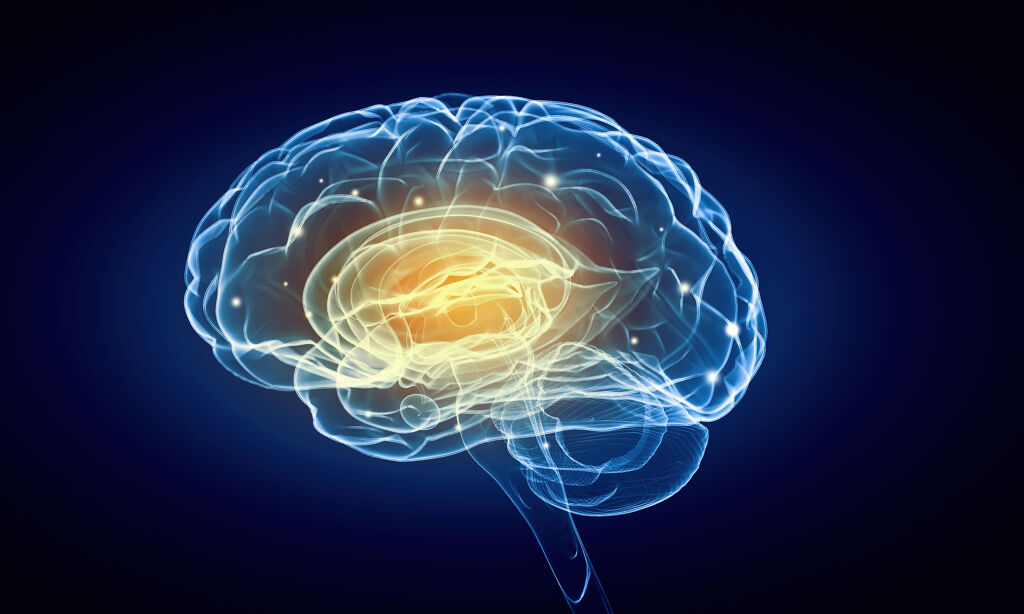What is Encephalopathy (aka “Brain Dysfunction”)?

What is Encephalopathy, otherwise known as Brain Dysfunction?
Do you have memory issues or trouble focusing? Are your problem-solving skills worsening? Or have there been any subtle personality changes?
These are all potential symptoms of brain dysfunction, which is medically called encephalopathy. Today we talk in detail about encephalopathy and will break it down for you step by step.
If you suffer from a changed mental state, brain dysfunction or encephalopathy, then read on for details about the many types of encephalopathy and how we can help.
In this blog, you will learn:
- What is encephalopathy
- What are the many different types of encephalopathy
- What causes encephalopathy
- How do we test for it and make a diagnosis
- How is encephalopathy treated and how can we prevent it from occurring
What is Encephalopathy?
Encephalopathy refers to brain dysfunction, brain disease or damage to the brain. Encephalopathy happens when there is a change in how the brain works. It can be any disease that affects the brain and causes changes in mental function.
The main symptom of encephalopathy is an altered mental state. The person is confused and not acting like their normal self.
Encephalopathy is not a single disease. It is a category of brain disorders that can have many causes.
Encephalopathy can be mild or severe. It can cause temporary or permanent brain damage, depending on its severity.
Encephalopathy is not the same as encephalitis. Encephalitis is basically brain inflammation. Encephalitis can cause encephalopathy but they are not the same condition.
There are a number of causes of this condition. It can sometimes be challenging to identify the actual cause, as it can be linked to many issues.
What are the Different Types of Encephalopathy?
There are over 150 types of encephalopathy in the medical literature (The NeuroCognitive & Behavioral Institute, 2023). Encephalopathy is a consequence of another health issue. It may result from liver damage due to alcohol, kidney damage, a lack of oxygen to the brain or other causes.
The following are some major types of encephalopathy, along with their causes:
- Chronic traumatic encephalopathy: This type is due to trauma or injury to the brain. This can happen to football players and boxers, for example, who suffer repeated blows to the head.
- Glycine encephalopathy: This is a genetic condition with abnormally high levels of glycine in the brain. It typically appears soon after birth.
- Hashimoto’s encephalopathy: This type is linked to the autoimmune disease Hashimoto’s thyroid disease. It is not known how exactly Hashi’s and encephalopathy are linked.
- Hepatic encephalopathy: This type is due to liver disease. Toxins that should be eliminated via the liver do not get eliminated and build up in the blood. They eventually reach the brain and cause damage.
- Hypertensive encephalopathy: This is when blood pressure is extremely high. If left untreated, it can cause the brain to swell and lead to brain damage.
- Hypoxic ischemic encephalopathy: This is a type of brain damage caused by a lack of oxygen to the brain. Lack of oxygen, or hypoxia, can cause permanent brain damage or dysfunction.
- Toxic-metabolic encephalopathy: This type is a result of infection or toxins, which can affect the brain. It can typically be resolved by treating and removing the particular infection or toxin. Toxic metabolic encephalopathy was reported in 7-31% of patients hospitalized with COVID-19 (Frontera JA, 2021).
- Metabolic encephalopathy: This is when another health condition like diabetes, liver disease, kidney failure or heart failure, disrupts brain function. With diabetes type 2, very high blood sugar can lead to confusion and even coma.
- Infectious encephalopathy: This type is due to infection. Infections can affect brain function, causing neuroinflammation and encephalopathy. Viruses, such as herpes simplex virus, Epstein-Barr virus or others, can cause encephalopathy.
- Uremic encephalopathy: This type is due to kidney failure.
- Wernicke encephalopathy: This type results from vitamin B1 deficiency. It can be caused by alcoholism, poor nutrition or poor nutrient absorption.
What are the Symptoms of Encephalopathy?
The key symptom is a change in mental state. A person can have:
- Memory issues or trouble focusing
- Subtle personality changes
- Impaired problem-solving skills
- Dementia
- Seizures or coma
Friends and family may be first to notice the symptoms before the affected person does. A change in personality is one way they may notice a problem. A person may become more outgoing with encephalopathy. Or they may be more, or less, calm than before the disease. Lethargy and drowsiness are also symptoms.
Possible neurological symptoms include:
- Muscle weakness in a particular area
- Poor concentration or ability to make decisions
- Involuntary twitching or trembling
- Difficulty swallowing or even speaking
- Seizures
See a doctor right away if you have symptoms of encephalopathy, especially if you experience severe confusion or disorientation.
What are the Causes of Encephalopathy?
There are many possible causes of encephalopathy. But most cases of encephalopathy can be traced to a few key things:
- Infection (from bacteria, virus or parasites)
- Liver damage from alcohol and / or toxins (i.e., mercury, lead, ammonia)
- Brain anoxia (a lack of oxygen)
- Kidney failure
Other less likely causes include:
- Metabolic problems like diabetes
- Brain tumor
- Head trauma or brain injury
- Pressure changes in the brain (due to bleeding, tumors, abscesses)
- Some prescription medications
- Poor nutrition, such as a vitamin B1 deficiency
To Read About Blog Topic, Scroll Down
Want To Work With Our Clinic?
Do you have a chronic or mystery illness that no one has been able to help you with? Are you simply wanting to re-connect with a healthier version of yourself? It’s Time To Finally Feel Better!
Which Lab Test Can Confirm a Diagnosis of Encephalopathy?
It is important to identify encephalopathy early. Identification and treatment can, in many cases, eliminate, reduce or stop the symptoms of encephalopathy.
Various tests can be used to diagnose encephalopathy. Sometimes, we have to presumptively diagnose encephalopathy, if the case is not completely clear or obvious.
The altered mental state usually presents along with another underlying root cause such as chronic liver disease, kidney failure, anoxia / lack of oxygen or others. Encephalopathy is really a complication, or a side effect, of the primary underlying root cause. The root cause of encephalopathy can be many things.
Different tests may be used to diagnose the underlying root cause of the encephalopathy.
Tests often used, which help to identify the possible underlying root cause, are:
- Cognitive tests to check mental status and memory coordination tests to diagnose an altered mental state.
- A CBC, or Complete Blood Count, blood test which can identify if an infection is present.
- A blood pressure test to check for high or low blood pressure.
- Metabolic tests to check blood levels of electrolytes, glucose, lactate, oxygen, liver enzymes. This helps to identify diabetes or other types of metabolic dysfunction.
- Test for drugs or toxin levels (alcohol, cocaine or other recreational drugs)
- Blood and body fluid cultures to detect diseases, bacteria, viruses, toxins, other pathogens or a hormonal or chemical imbalance.
- A creatine test to look at kidney function.
- Imaging scans (a CT or MRI scan) to check for brain swelling, infections or other abnormalities.
- An ultrasound to see blood flow to tissues or abscesses.
- Encephalogram, or EEG, measures the electrical activity in the brain, to look for brain damage or abnormal brain wave patterns.
- Autoantibody analysis which can check for dementia and antibodies that damage the brain.
- A review of prescription medications to check if the person is on a medication (for example, cyclosporine) that could be causing the symptoms.
Other tests may be used in diagnosing encephalopathy and its underlying cause. Or it may be that not all of the above tests need to be done on every patient. Specific testing is decided based on the symptoms and medical history of the patient.
How is Encephalopathy Treated?
The treatment protocol for encephalopathy depends entirely on the underlying root cause of the encephalopathy. There is no standard treatment as not all cases of encephalopathy are the same. Encephalopathy is often reversible with treatment.
Treatment includes symptom management while simultaneously working to resolve the underlying cause.
Treatment can include:
- Symptom management: For example, anticonvulsant medication may be needed to manage seizures and keep the patient safe.
- Root cause treatment: For example, in Wernicke encephalopathy due to a B1 deficiency, nutritional supplements might be used. Antibiotics are often used to treat encephalopathies caused or triggered by infections. Stopping a medication that causes the symptoms may be required. Changing the diet to address a nutrient deficiency or a condition like diabetes type 2 might be the treatment. In the case of liver or kidney problems, dialysis or even an organ transplant might be the solution.
If left untreated, encephalopathy can lead to worsening brain function, permanent brain damage or even death.
What is the Outlook for Encephalopathy?
The outlook or prognosis for encephalopathy depends largely on whether the encephalopathy is reversible or irreversible.
Encephalopathy from head injuries, toxins, cardiac arrest, or lack of oxygen to the brain cause physical damage to the brain that is usually permanent. That means the patient’s mental state may not go back to what it was.
In reversible encephalopathy, from organ failure, metabolic conditions, or infections, symptoms usually go away when the underlying problem causing the symptoms is resolved. The patient may be able to regain previous mental abilities. For example, in hepatic encephalopathy, clearing toxins from the blood can resolve the issues with confusion, memory problems or mood swings.
How Can You Prevent Encephalopathy?
Prevention is always better than the cure. It is best to try to avoid getting to the stage f encephalopathy. Cases of encephalopathy can be prevented by avoiding the many primary causes.
You can reduce your risk of encephalopathy by following some basic lifestyle habits include:
- Eat a healthy diet, exercise and maintain a healthy weight.
- Don’t consume excessive amounts of alcohol. If this is a problem, then seek help.
- Decrease exposure to all types of toxins. Toxins can be in food, water, the air, personal & cosmetic products, household cleaning products, etc.
- Avoid medications that negatively affect the nervous system.
- Reduce the risk of head trauma by avoiding high risk sports and just generally being careful & aware of your surroundings.
- See your Functional Medicine doctor regularly, which can help to catch anything early.
Summary
- Encephalopathy refers to brain dysfunction, brain disease or damage to the brain. Encephalopathy happens when there is a change in how the brain works. It can be any disease that affects the brain and causes changes in mental function.
- The key symptom is a changed or altered mental state. Memory, focus and problem–solving issues may also be involved. In a severe case, seizures or coma is possible.
- There are over 150 different types of encephalopathy
- Each type has a different cause and a different treatment.
- It is most effective to practice prevention in the case of encephalopathy. Develop healthy lifestyle habits such as a healthy diet, exercise, avoid addictions, decrease exposure to toxins, try to not take medications, avoid high-risk pursuits and activities to avoid head trauma.
- Check in with a Functional Medicine doctor, or our clinic, to address a case of encephalopathy in yourself or a loved one.
** Follow us for our next Blog on the Functional Medicine approach to Chronic Disease **
As always, please get in touch with us. If you or someone you know is struggling with cognitive or neurological symptoms, contact our clinic today. We can work on any issue(s) and improve your health. Book a free health evaluation call with us today, to see how we can help you with your concerns. We can answer your questions and help you book an initial consult with one of the functional medicine doctors in our clinic.
Are You Suffering From A Chronic Illness?
Does your current health situation look like this…
- Do you feel that you have tried many things and either nothing works, or the treatment does not hold?
- Have you been told that there is nothing that can be done to reverse your illness and you just need to manage symptoms?
- Does your illness impact your work, your family, your happiness and your social life?
We specialize in finding answers and solutions for complicated chronic illness when people feel like they have tried everything. If this sounds like you, book a free call with us to see if we are the right fit for your health goals.
Dr. Miles has spoken for the following organizations:















